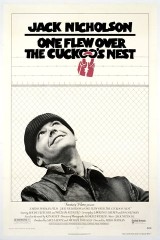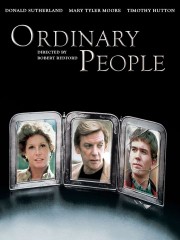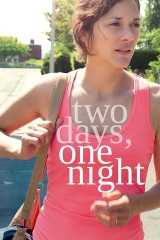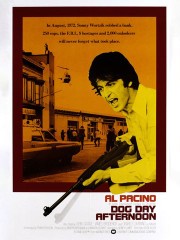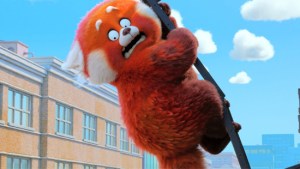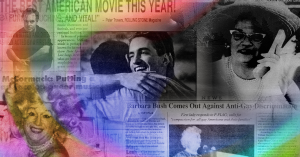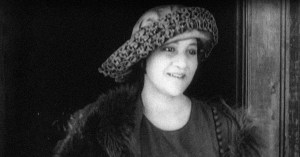Alex Wolff’s Five Favorite Films
Ahead of his directorial debut, The Cat and the Moon, the Jumanji and Hereditary star talks about his love for some 1970s classics and a powerhouse performance by Marion Cotillard.

(Photo by Jeff Kravitz/Getty Images)
After a breakout year in 2018, actor/writer/director Alex Wolff looks to finish 2019 on a wave of momentum and stellar reviews; while poised to make 2020 even more spectacular. While collecting innumerous accolades and an impressive box office haul for his starring role in Ari Aster’s Hereditary opposite Toni ‘was-robbed-of-an-Oscar-and-we’re-still-not-over-it‘ Collette, Wolff simultaneously watched the receipts roll in for his the end-of-year smash hit Jumanji: Welcome to the Jungle (he will also return for the sequel Jumanji: The Next Level this December). Our new “Crown Prince” of the 2019 Toronto International Film Festival, the veteran actor trekked to Toronto with not one or two but three Fresh features, including the HBO pickup Bad Education starring Hugh Jackman.
Just days away from his 22nd birthday (yes, you read that correctly — twenty-two — and no, we can’t wrap our heads around it either), Wolff will soon hit theaters both in front of and behind the camera for his feature debut, The Cat and the Moon. In the film, we follow Nick (Wolff), a teen who explores the streets and dark jazz rooms of New York City with a friend of his late father after his mother unexpectedly abandons him to enter rehab. We recently caught up with Wolff to chat about his Five Favorite Films (a series he’s a surprising expert about), give him a few recommendations, and find out if acting or directing was his first love.
Jacqueline Coley for Rotten Tomatoes: You were recently a part of two huge films in the pop-culture consciousness, but they’re completely different: Jumanji and Hereditary. What was that like?
Alex Wolff: That’s a really cool question. There were a couple of other films that I was part of that came out at that time, so I saw it more as a clump of films that I was really proud of. I did House of Tomorrow, then My Friend Dahmer then Jumanji, then Hereditary, and then I started developing my film The Cat and the Moon. Yeah, Hereditary was this crazy overnight thing. I remember prepping to shoot my film, seeing all these articles popping up on people’s phones. Everyone was like, “Hey, your movie is killing at Sundance.” I was like, “Oh, cool.” I don’t think much of it. I’ve been part of enough things that people say are going to hit and then don’t, so who knows what’s going to happen? That one was just crazy, though, because it came out of nowhere, and it just seemed to hit me in the face. Jumanji, it was like a “Phew!” because they put a lot into it, a lot of money, and a lot of people were part of it. I had such a great time doing it, but that was a huge relief; it was well-received. My Friend Dahmer also did way better than people thought. Hereditary was such a challenging and exciting experience. I was so proud of what we did. That’s a long-winded way of say I still haven’t really processed it. It’s kind of crazy. I know that now I can’t walk down the street without people looking at me and knowing my face. I’m like, okay…. okay.
Which one do people on the street mention most?
Easy. Hereditary, and they make the clicking sound. [Laughs] And a lot of people say they hate me and that I traumatized them for life, but I just take that as I’m doing a good job.
The Cat and the Moon is your first feature as director. Was this the goal from the beginning?
Acting was always number one. It’s still number one. It’s the love of my life. It’s the thing that I do. It’s my job and the thing I’m the most obsessed with. I believe that writing, directing, and acting are all part of the same sphere of creativity. They’re all achieving the same thing for me, just in different ways. Writing and directing is this cool way of expressing it. I find that they’re unfortunately separated somehow when people talk about them. We’re all trying to make a great movie. That’s what I love. I love good movies, and I love the artistry around all of it. Writing, directing, and acting, to me, are part of the same world. It’s like you’ve got the tricep and the bicep and the elbow, and it’s all making your arm.
Was there anything that you saw from working with Ari Aster, Cory Finley, or some other director that made you say, “Okay, I want to apply that my directing?”
Yeah. Peter Berg, who’s an executive producer on The Cat and The Moon. Peter Berg and Ari [Aster] and Corey Finley, whom I’ve worked with twice, and all these other amazing directors that I’ve gotten to work with, were fully responsible for easing my nerves. They talked me through what it’s going to be like and what to prepare for. What I learned from them was to have full confidence in what I was trying to make. Ari, Peter, and Cory are all bold filmmakers in their own right and specific filmmakers. They make films that are personal to them. I knew I would hate myself forever if I tried to put in complex steady cam shots, because that’s not what this movie called for. Maybe I’ll do that in the future, but I knew this movie was fully in the heart of the Dardenne brothers. A patient character study that needed the camera to be still and patient to feel like this beautiful eye was watching what was going on. They told me to have full conviction in what it was, what I was doing, and try not to create something that was bulls–t.
As a working actor, was casting the film easier or more difficult, and is your brother in any way mad that you didn’t cast him?
My brother has got enough going on; he was so busy. He helped me produce it, but yeah, he’s really mad. [Laughs] No, I’m just kidding. He is in it, though. You’ll not notice but it’s his voice in the background of a scene. I won’t tell anybody which. We recorded on an iPhone, and we ended up using it because it was so funny. I’m screaming at him on the street.
And the casting?
It was easier than I thought it would be. It was really easy to audition because I was so excited that people were reading my dialogue. I loved seeing them improvise, and that was part of what made me cast them. I cast people who could improvise great stuff. Getting kids or teenagers who can do that is kind of few and far between. For this film, there’s a lot of different types of things that demand personal magic and demand a certain type of spontaneity that can make this type of film work, that if it doesn’t have it, the film falls flat. Most of the people didn’t audition. I knew Tommy Nelson, who plays Russell. He was in the film called My Friend Dahmer with me. Stefania Owen, I’d done Come through the Rye with, and she was amazing. Actually, no, Julian did an audition. I made my friend audition. I’m a terrible person. But it was because I hadn’t seen him in that type of part. Mike Epps, I just offered it to him because I saw him in these two amazing movies. I saw him in this film Bessie and in Sparkle. I thought he was amazing in both of them. I didn’t even remember that I’d seen him in The Hangover — lots of New York actors. There’s a bunch of amazing actors in New York, and everybody brings something really interesting to the table. It was hard choosing honestly.
You said giving a log-line is a bit stressful, so how about you give us the three films you’d recommend to watch before or have same the vibe of your film?
You Can Count on Me, Oasis, and The Kid With a Bike, and maybe Blue is the Warmest Color as an honorable mention.
You love those honorable mentions
Yeah, well I love these movies; it’s so hard to choose.
The Cat and the Moon is in theaters October 25th.


